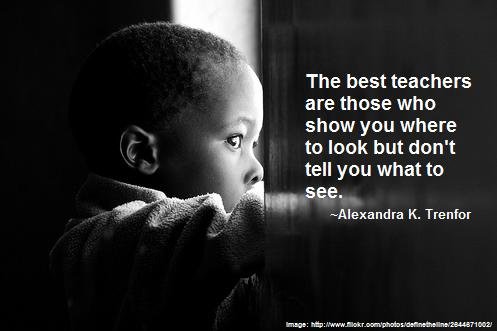Where do you search for wisdom? The choices are endless. But I find that
I learn more from listening to the voices of those around me. Some of these
voices talk from the pages of books. Others come from the web. But the ones
that matter most and to whom I owe the greatest debt in learning how to live
are those who talk to me across coffee or dinner or on the street. The vast
majority of these people are students.
Caro, as she goes by, is an international student from Barranquilla,
Colombia.
*********************************************************************************
"Había tenido que promover 32 guerras, y violar todos sus pactos
con la muerte y revolcarse como un cerdo en el muladar de la gloria, para
descubrir con casi cuarenta años de retraso los privilegios de la
simplicidad."
“He
had had to start thirty-two wars and had had to violate all of his pacts with
death and wallow like a hog in the dung heap of glory in order to discover the
privileges of simplicity almost forty years late”
-One Hundred Years of Solitude, Gabriel Garcia Marquez.
A Defense of the Small
The world needs changing.
Although the times might have somewhat improved from a “nasty, brutish, and
short” life for most cited by Thomas Hobbes, the world can still be a cruel
place. It can be a place of ignorance and disdain, a place where injustices and
crimes occur daily, a place destroyed by those who live in it, with no regard
for those to come.
The world needs changing. The world needs people—young people, smart
people, ambitious people—to lead the change. And why shouldn’t it be us? At my
research university in the US, there is no lack of ambitious students. Students
with ideals and high moral ground; students who start social movements and lead
protests. Students who see the world we live in as a young child that has been
driven astray—or maybe never was in the right path to begin with—. These people are necessary. Whenever I
encounter one of them—for I myself am not part of these select few—I experience
awe and admiration.
But I am here to tell you that there is another way. There are two paths
that lead to change. One of them is the aforementioned one.
The other is the way of the small.
They way of the small is
a way of living. Perhaps the easiest way to explain it is to say what it is
not: the way of the small is not about going abroad to some suffering
third-world country and saving starving children, or single-handedly defeating
a drug mafia. Rather, it is the opposite: it is a deeply individualistic
movement that focuses on improving the life you already have. It is about
making yourself so happy on a daily basis that your joy becomes contagious to
others.
This is easier said than done. The way to do this is to build
strategically a methodical system of happiness. By this I mean to identify
those things that occur constantly in our life that affect us: the tiny details
that leave us with a smile, or those nuisances that manage to annoy us. This
approach includes identifying key recurring situations as well: things that
happen over and over in our life and to which we usually react in the same
manner. To identify these things and our reactions to them is in itself a hard
task: it demands a constant self-awareness that requires commitment and energy.
Without this carefully collected self-knowledge, it is impossible to purposefully
make yourself happy.
Think about
self-awareness as an ongoing, never ending process. Self-awareness in daily
life will always be necessary simply because you as an individual are not a
static unchanging entity. The things that might have deeply touched you or
affected you in the past will probably not be the same in the future. People
change. The key lies in focusing in those events of your daily life that both
affect you greatly and are within your own personal control. Establish a
system: do it so that those things that make you happy occur regularly. Also
make sure to reduce to the extent possible those situations that cause you
anguish, sadness, or anxiety; for example, whenever I don’t get at least eight
hours of sleep, I find myself in a terrible mood. This tiny detail makes things
go horribly wrong the next day. Usually the reason why I don’t sleep enough is
simply because I take my computer with me to bed. The solution then is quite
simple-- my computer is simply not allowed inside my room. Whenever I go to bed
I follow the same routine and my computer is not a part of it. Such a tiny
detail like this has exponential repercussions in my daily life.
This is what I mean by
establishing a system: once the system is in place I don’t have to make a
decision and I don’t have to rely in my strength of will nor waste any of my
energy. The goal is to make individual rituals of happiness a constant part of
your daily routine. These rituals will vary from person to person. A friend of
mine, for example, enjoys making a specific fruit smoothie for breakfast every
morning. Although not everyone derives the same joy from smoothie making, for
her, this little ritual is the trademark of a good day. The system functions in
the same manner to avoid bad situations. If in the past every time you have
missed your 9 AM class because you went to bed at 2 AM, chances are that if you
go to sleep late, you will miss your 9 AM. Start viewing your fixed reactions
as laws of physics. You know that if you drop something it will fall to the
ground. Treat your reactions to the constant situations in your life with the
same inevitability.
I can’t stress enough how
important it is that your rituals of happiness are things over which you hold
most, if not all of the control. This is why developing and having a craft is
such an important part of the way of the small. A craft can be any activity. It
can range from sweeping the floor to coding Javascript. It is an activity that
you do constantly, if not everyday, something in which you are constantly
improving, and something you eventually become very good at. The personal
satisfaction and fulfillment that comes from having a craft—a personal, deeply
individualistic craft—is indescribable.
The benefit of
the way of the small is that it makes room for great moments in your life.It
frees up time and energy for unexpected situations to occur. It is this basic
state of constant happiness that invites in other people and creates random,
fun, unexpected situations. The way of the small is a way to create movement in
the outside world by going deeper within you. It is a commitment to the
ferocious pursuit of your own individual happiness. For most of us, life does
not consist of great, transcendental moments, or life-altering occurrences
(although it certainly does have them). Life is made by the daily, the
nuisances, the tiny details. The way of the small is a way to change the world.
Your picture won’t be printed in the first page of a newspaper nor will you get
a Nobel Peace Prize. But you will have beauty, and you will have joy, and you
will have the love of those that surround you. And, to me, that is what counts
in the end.
Caroline Dahmen
It is hard for
me to write anything that could add much to the Caro’s insights. I think if
Caro wanted to she could take these words and become an inspirational speaker
and earn quite a nice living.
Wisdom is
different than knowledge and this college student has far more wisdom than most
people I have met. She also has science on her side. Data demonstrates that developing
habits of body and mind as she recommends is a sure way to increase productivity
and mental health.
I am unsure if
students today as a whole have come to know themselves better than students of
my generation, but Caro has taught me that it is not age that matters when it
comes to wisdom. I know Caro enough to say she is widely read, comfortable
talking to anyone, and perhaps more important than anything else, curious. She
asks questions of others and herself and does not settle for the superficial.
The small, the delicate detail, ‘the little unremembered acts of kindness’ (WC
Williams), the red wheelbarrow (Williams again) are entries into the world before
us, the world we walk through but seldom see with our tired and habit-driven
eyes. Caro has let me walk through the world using her expert eyes and for that
I am grateful.
As many of the
entries on this blog demonstrate, students have much to teach us, those who are
supposedly more experienced and have at one level or another been crowned with
some degree or recognition for being an expert of some sort. To me the designation
of mastery is often a doorway that leads away from openness to others who have
not attained a similar rank or recognition. I know, if I know anything, that blindness
and insight sit on our shoulders whispering--sweet somethings and nothings. I believe
as long as I follow the paths set down by students I will continue to learn.
Today, for example, a
student taught me about a new way of communicating globally that
has started by one of the founders of TED. Another taught me about the Soviet strategy
of using troop exercises as a method of intimidation
against Finland. Another gave me insight about
playing Polo professionally. Another bout staring up
a music business in Turkey, and another about doing research on diabetes since this
disease affects poor and under-represented
populations at rates much higher than those not in these categories. Another
talked about using multimedia in a college newspaper, and
another about Tiger Moms. And another about start ups on the West Coast
and in China. These are, as the poet Wallace Stevens has
written (and I have quoted here before), 'merely
instances', and the list is far from complete,
even for today.







Parke: This is phenomenal stuff! I have always characterized 'wisdom' as "intelligence salted with common sense." You and your confreres have articulated it beautifully. I learn from my students daily. Many thanks. Alan Haas, Independent Educational Consultant, IECA.
ReplyDeleteAlan, Thank you so much for your comment. I am very lucky to have the same experience as you when it comes to learning from students. It is humbling to know Caro is writing in a second language too. Best to you.
DeleteParke